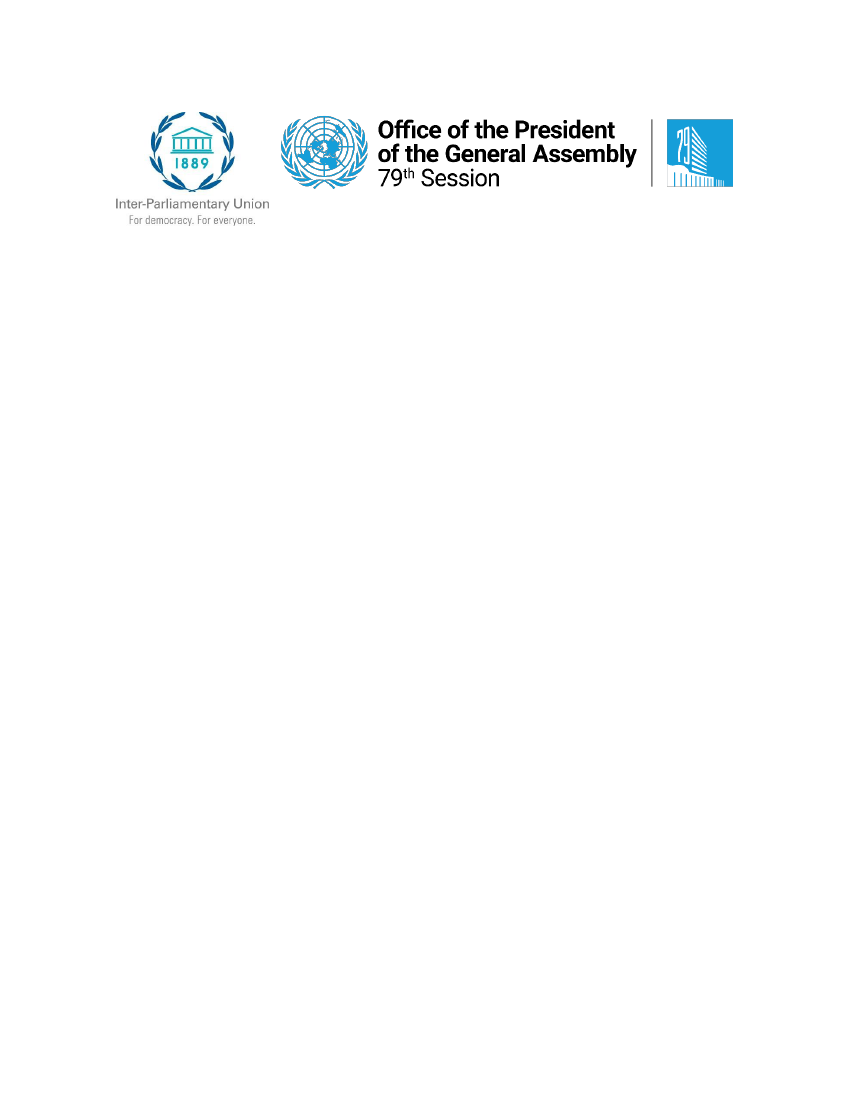
Summary report of the 2025 Parliamentary Hearing at the United Nations:
Scaling up
action for the Sustainable Development Goals: Finance, Institutions and Politics
Jointly organized by the Inter-Parliamentary Union and the Office of the President of the
General Assembly at United Nations Headquarters
13 and 14 February, 2025
Introduction
1. The 2025 Parliamentary Hearing at the United Nations (UN) was jointly organized by the
Inter-Parliamentary Union (IPU) and the Office of the President of the General Assembly.
Approximately 180 parliamentarians from 60 countries attended the hearing.
2. The hearing included seven interactive discussions featuring panels of experts on topics
such as international trade, debt, taxation, overseas development assistance (ODA) and
private-sector investments. It provided an opportunity for parliamentarians to share best
practices, build cooperation, and provide input on ongoing negotiations and in view of
the 4th International Conference on Financing for Development, to be held in Seville,
Spain, from 30 June to 3 July 2025.
Opening session
3.
Mr. Philemon Yang,
President of the UN General Assembly at its 79th session,
welcomed the parliamentarians and said that with only five years left, there was an urgent
need to implement and fund the 2030 Agenda for Sustainable Development. He reminded
parliamentarians that they held the legislative, budgetary and oversight powers necessary
to turn global commitments into tangible action. In light of the upcoming 4th
International Conference on Financing for Development, the moment was ripe to
mobilize financing for the Sustainable Development Goals (SDGs), enhance international
cooperation, leverage private investment, build political will and effectively engage all
stakeholders. The Pact for the Future, adopted in September 2024, provided an
opportunity to turbocharge efforts towards achieving the SDGs, and parliamentarians
were invited to champion its implementation.
1